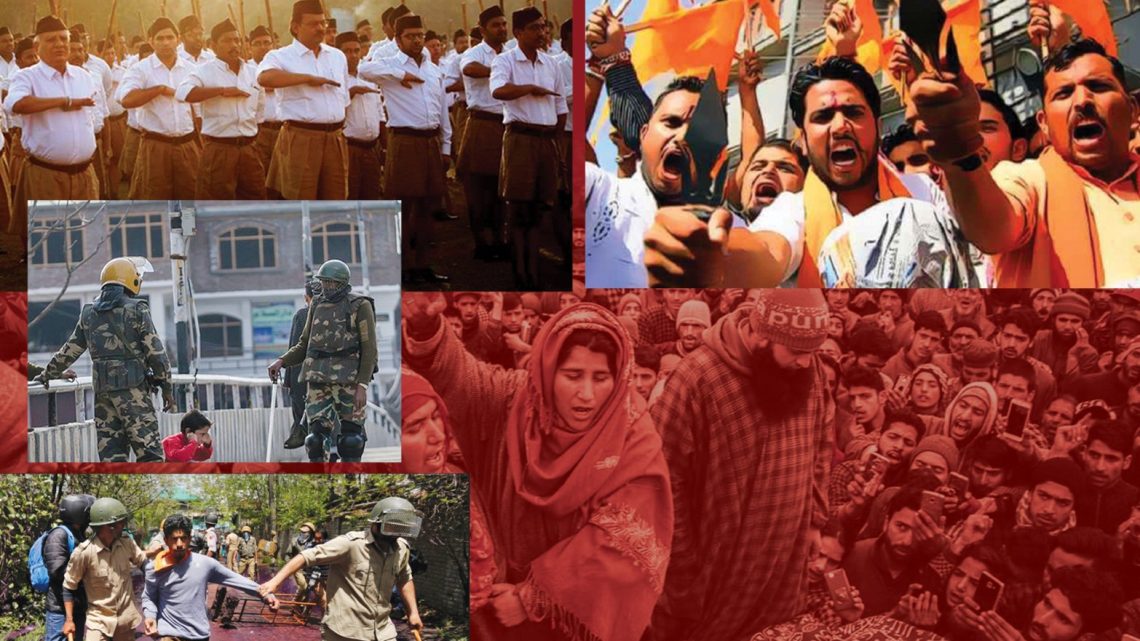
Human Rights Violations in IIOJK and India: A Critical Overview
August 13, 2024The human rights situation in Indian-illegally occupied Jammu and Kashmir (IIOJK) remains dire. Persistent abuses include the incarceration of journalists and human rights defenders. Indian state-sponsored militants are reportedly engaging in extrajudicial killings, abductions, and assaults, with minimal accountability.
The BJP government has been accused of using Indian security forces to advance Hindutva agendas, intimidating the Kashmiri population. Custodial killings of Kashmiri youth by the Indian occupational army reflect severe human rights breaches. Reports suggest that India is adopting tactics similar to those seen in Israel, moving towards genocidal policies against Kashmiri Muslims.
India plans to invoke the ‘Enemies Agent Act,’ which could lead to the arrest of Kashmiris for up to five years, potentially allowing forces to act with increased impunity. Political leaders and activists, including figures from the Hurriyat leadership like Masarrat Aalam Butt and Muhammad Yasin Malik, have been detained under stringent sedition laws such as PSA and UAPA.
Economic strangulation through land grabbing and resource exploitation aims to marginalize the local population and alter the demographic landscape. The BJP-led government has banned several prominent political parties, including J&K National Front and Jamaat-e-Islami, to suppress dissent.
Statistics on Human Rights Violations (January 1989 – June 2024)
The following statistics highlight the scale of abuses:
– Total Shaheed: 96,320
– Custodial Killings: 7,341
– Civilian Arrests: 171,627
– Structures Arsoned/Destroyed: 110,515
– Women Widowed: 22,976
– Children Orphaned: 107,963
– Women Gang-Raped/Molested: 11,264 (as of June 2024)
Recent data since August 5, 2019, includes:
– Total Killings: 887
– Tortured/Critically Injured: 2,430
– Civilian Arrests: 24,688
– Structures Arsoned/Destroyed: 1,119
– Women Widowed: 68
– Children Orphaned: 185
– Women Gang-Raped/Molested: 133
Human Rights Watch’s 2024 World Report notes increased violence and discrimination against minorities in India. Authorities often fail to hold perpetrators accountable and instead target victims and critics. For example, retaliatory demolitions of Muslim properties followed communal violence in Haryana in July 2023. Journalists and activists face harassment, with raids and financial scrutiny, exemplified by the raid on BBC offices following a critical documentary.
In Manipur, ethnic violence between the Meitei and Kuki Zo communities led to over 200 deaths and displacement of tens of thousands. Amnesty International has documented punitive demolitions of Muslim properties in BJP-ruled states, often without due process.
India’s 2024 World Press Freedom Index ranks it 159th out of 180 countries, trailing behind Turkey, Pakistan, and Sri Lanka. Reports of rape and sexual assault remain high, with 7.1% involving rape. The NCRB data highlights a rise in kidnapping and abduction cases involving women.
Corruption is also a concern, with India ranked 93rd on the Corruption Perceptions Index. Violence against Dalits, Adivasis, and Muslims, particularly related to cow-related violence, and the persistence of child labor underscore ongoing human rights challenges. The International Crisis Group points to the BJP’s promotion of Hindutva as a major factor in social polarization.
Both Jammu and Kashmir and broader India face significant human rights challenges. Addressing these issues requires international attention and concerted efforts to ensure accountability, protect vulnerable populations, and uphold fundamental freedoms.

